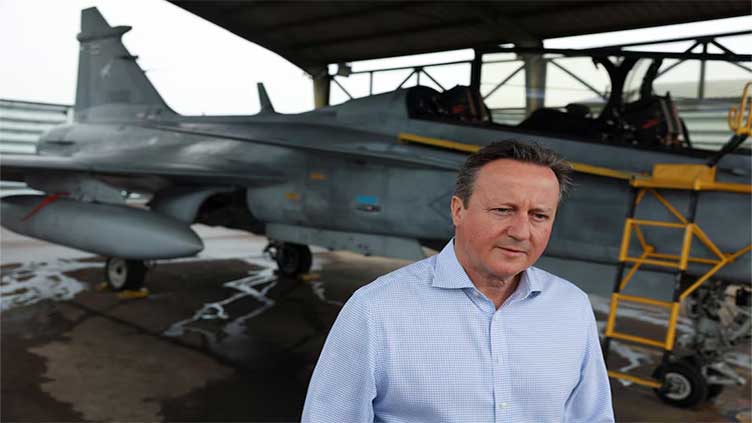Britain's Cameron says Gaza ceasefire crucial but 'a whole lot of conditions' to meet

World
Cameron said only way for the Palestinian people to have a future is without Hamas
NAKHON RATCHASIMA, Thailand (Reuters) – Britain's Foreign Secretary David Cameron on Wednesday said it was vital for a pause in fighting between Israel and Hamas to enable the release of hostages in Gaza, but a lot of conditions first needed to be met for a lasting ceasefire.
Speaking to Reuters during a trip to Thailand, Cameron said attacks on Israeli civilians by Hamas last year and its holding of hostages was inhumane, and the only way for the Palestinian people to have a future was with the group out of the picture.
"Crucially what we must try to do is to turn that pause into a permanent sustainable ceasefire," Cameron said in an interview during a visit to a Thai air force base.
"We will only do that if a whole lot of conditions are fulfilled... we've got to get Hamas leaders out of Gaza, we have to dismantle the terrorist infrastructure."
His remarks come as Washington launches a new diplomatic push for a ceasefire in the nearly six-month-old war, to free hostages and bring in food aid to ward off famine in the Palestinian enclave.
Secretary of State Antony Blinken will visit the Middle East this week, where he will meet senior leaders of Egypt and Saudi Arabia to "discuss the right architecture for a lasting peace", though made no mention of a stop in Israel.
Cameron also said a bloody conflict in military-ruled Myanmar was now a "multifaceted civil war" and there was a need for former colonial ruler Britain, Southeast Asian bloc ASEAN and other countries to step up and help end the fighting.
He said he hoped Britain could play a role in ensuring aid could reach those most in need in Myanmar, which has been embroiled in fighting between the military government on one side and an armed resistance movement and ethnic minority rebels on the other.
Cameron was in Nakhon Ratchasima in northeastern Thailand inspecting Gripen fighter jets built by Sweden's Saab in collaboration with British firms.
He hoped Thailand would procure more, in an unspecified deal that he said would be worth 400 million pounds ($508.64 million) to the British economy.
He also said a strategic partnership would be signed between Britain and Thailand that would take ties to a new level.


